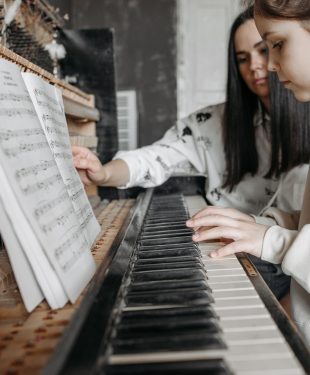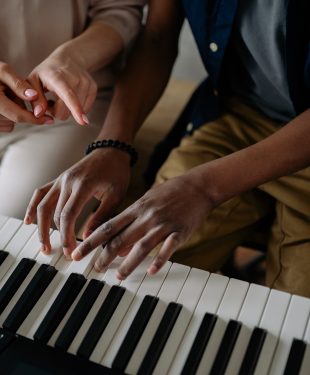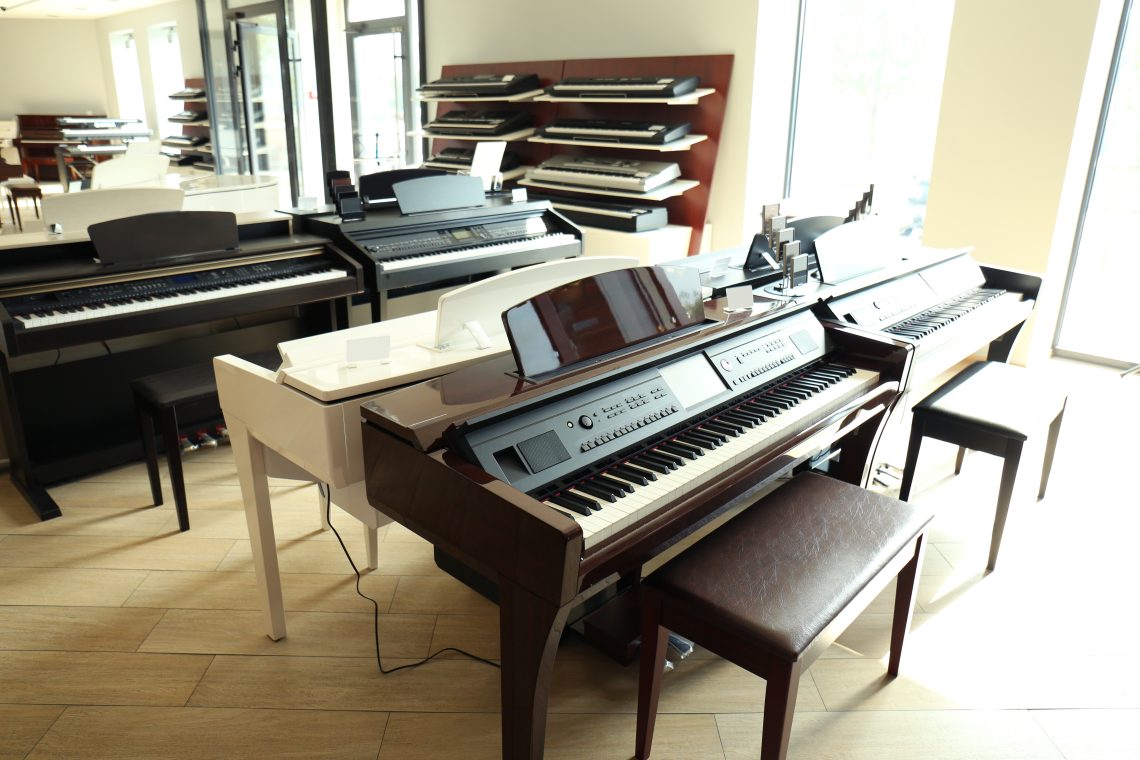Today we bring you the top 10 things to consider before buying a piano. Buying a piano is a significant investment that requires careful planning to ensure you make the right choice. Many people make common mistakes when purchasing a piano due to a lack of preparation. This post will discuss the top 10 things to consider before buying a piano in order to find the perfect match for your needs. Purchasing an instrument that meets your true requirements will help maximize your enjoyment and musical progress.
Commitment to Learning

Photo by on Pexels
The most important consideration is deciding if you are truly committed to learning to play the piano. Buying an instrument when you’re not ready to put in the practice and take regular lessons will likely be a waste of money. Make sure you have the dedication necessary to progress as a pianist before purchasing from a piano store San Diego. Those who are ready to invest the time and effort required to learn will truly unlock the joys that playing an instrument can bring. Without a real commitment to learning, even a high-quality piano will sit unused.
Decide if you have the discipline for at least an hour of daily practice and regular lessons with an instructor. If not, hold off on purchasing until you are prepared to make learning a priority. Buying a piano prematurely risks wasting hundreds or thousands of dollars on an instrument you never truly utilize. A true commitment to learning is the first requirement for getting value from your investment.
Total Cost Considerations
In addition to the purchase price, understand the full lifetime costs of owning a piano. Professional moving costs range from $200 to over $2,000 depending on the piano type and distance moved. Annual tuning typically costs between $100 to $300 and is essential for optimal performance. Proper maintenance like repairs can also accumulate significant expenses over time.
Understanding these extra costs – for moving, tuning, and repairs – upfront will help you budget properly for your new instrument. What seems like a good deal on a free or inexpensive used piano may not be a bargain once you factor in the cost of moving, tuning, and potential repairs.
Matching Skill Level
Buy an instrument that matches your current and future skill level as a pianist. Trying to learn on a piano that is either too advanced or basic for your ability can actually hinder your progress. Beginners are generally best suited starting with an upright or weighted-key digital piano to build proper technique. As your skills develop over time, you may want to graduate to a higher-quality acoustic or grand piano suited to an intermediate or advanced player.
Purchasing a premium grand piano when you are just starting out may give you piano envy you cannot really utilize. Meanwhile, an extremely basic or low-quality piano may lack the proper responsiveness, touch, and tone to aid you in developing good habits as you learn. Aim to buy an instrument matched to your current needs and understanding that will allow you to progress at the right pace.
Existing Pianos
Before purchasing a new piano, consider any existing pianos that may be available for free from family or friends. However, carefully evaluate these options. Check to see if the piano is still in a playable condition requiring only routine tuning and minor repairs. Major repairs can cost thousands for a high-end piano, negating any savings from a free instrument.
Consult Your Teacher

Photo by on Pexels
The advice of a good piano teacher can help you determine the best piano for your needs and budget. Teachers have experience identifying pianos of different makes and models. They can recommend good deals and point out the qualities of a particular piano that suit your learning style and goals. A teacher’s guidance helps ensure you end up with the right instrument to facilitate your progress.
Used Pianos
Before purchasing a new piano, consider any existing pianos that may be available for free from family or friends. However, carefully evaluate these options. Check to see if the piano is still in a playable condition requiring only routine tuning and minor repairs. Major repairs can cost thousands for a high-end piano, negating any savings from a free instrument.
Family Buy-in
Ensure that all family members who will play the piano actually want it. Communication and agreement between potential players is crucial for consistent use and follow-through. Without full buy-in from those expected to practice and learn, a gifted piano risks sitting unused. Make sure everyone interested has a voice in selecting the instrument and agrees to adhere to a practice schedule.
Timing
Learning a musical instrument takes time and consistent practice from a young age for musical skills to develop fully. To maximize your child’s potential, it’s best to start lessons between ages 5 and 7. Not only will this give them a head start, but it will instill a lifelong appreciation for music. So don’t wait – invest in a piano now to provide the perfect environment for nurturing musical talents.
Research
Before committing to a specific piano, take the necessary time to research your options thoroughly. Compare different brands and models based on crucial factors like tone, size, feel, sound quality, and aesthetics. An acoustic piano will produce a fuller, richer sound compared to a digital piano, but digitals are more compact, portable, and affordable. An upright piano is a good choice for beginners due to its relatively small size and lower cost. A grand piano provides the best sound and performance but requires more space and a higher budget. Mention any other specific research details that apply to your situation.
Finding the Right Fit
Finding the right piano involves considering various factors to match your needs and fuel your playing for years. Pay careful attention to how you plan to use your piano. Consider whether you need an acoustic or digital piano based on space, volume, and desired sound. Acoustic pianos provide a rich full sound but take more space while digitals offer portability and various voices. Your budget will largely determine the quality, features, and brand you can afford so research different options within your price range. Also assess if extra features like weighted keys, hammer action, and touch sensitivity matter to your playing style. The size influences portability, sound quality and may impact hand span, so find one suited to your frame. Finally, always try different pianos in person to find the tone and feel that inspires you most before committing. Taking these key factors into account will lead you to a piano that matches your needs and provides years of musical joy.
Choosing the right piano is an important decision that will impact your ability to play, create and enjoy music for years to come. While there are many piano options on the market in a range of sizes, styles, and prices, focusing on the key factors discussed here will put you in the best position to find a piano that matches your needs and inspires your playing. From the type of piano and brand to features, size, touch, and tone that suit you, considering all these factors carefully before making a purchase will increase the likelihood you end up with an instrument that truly fits your playing style and musical goals. So take your time during the decision-making process, try out different pianos in person, and envision how the piano will enhance your growth as a musician for many years. With a bit of research and patience, you’ll undoubtedly find the perfect piano to fuel your passion for music.
Read more lifestyle articles at ClichéMag.com
Images provided by Deposit Photos, BingAI, Adobe Stock, Unsplash, Pexels, Pixabay & Creative Commons

